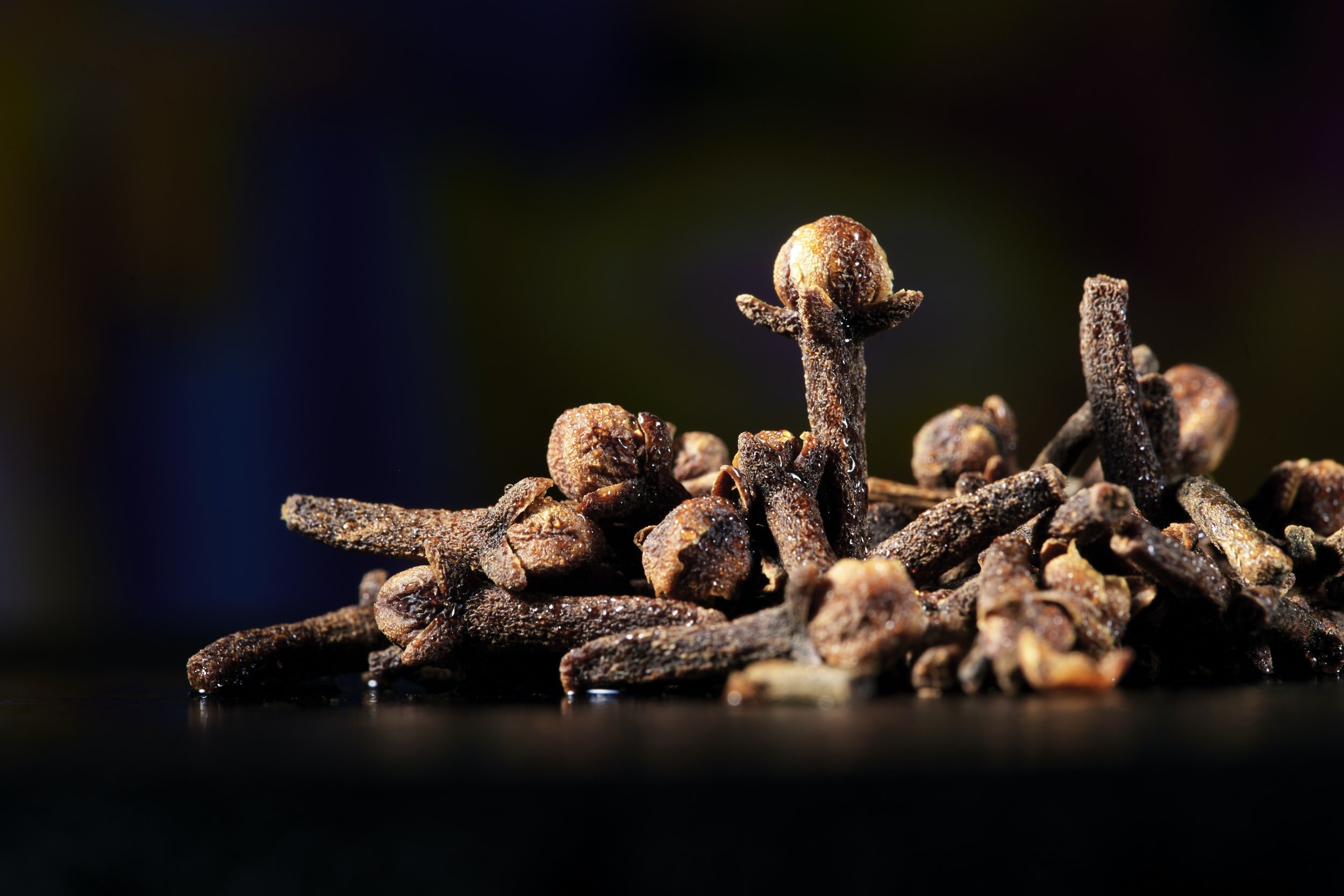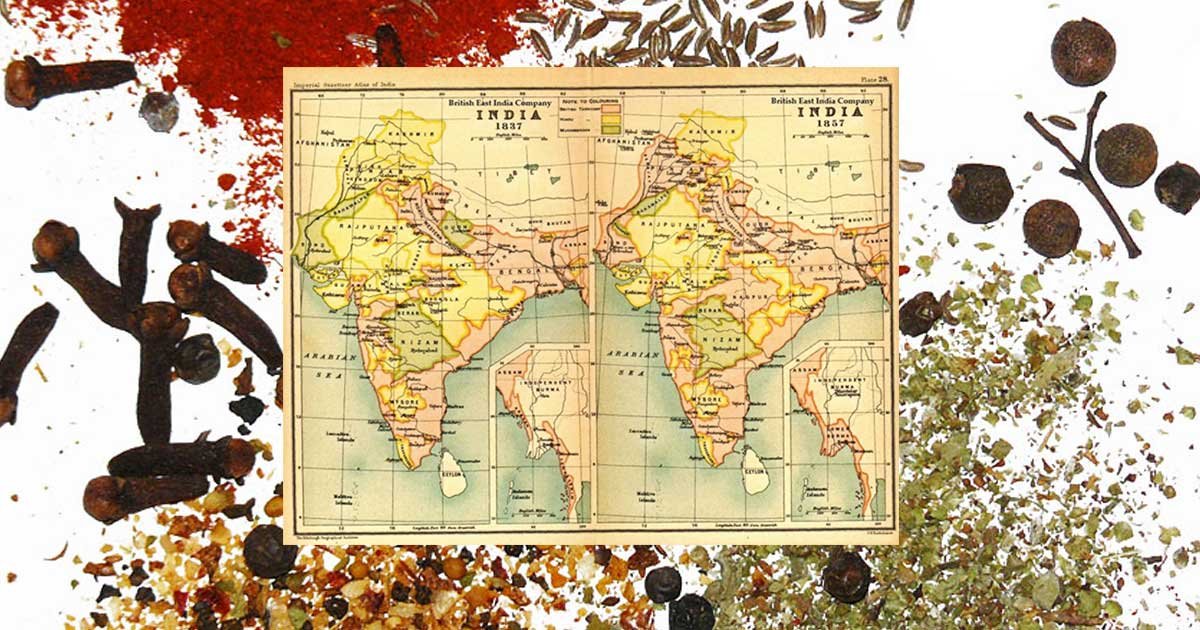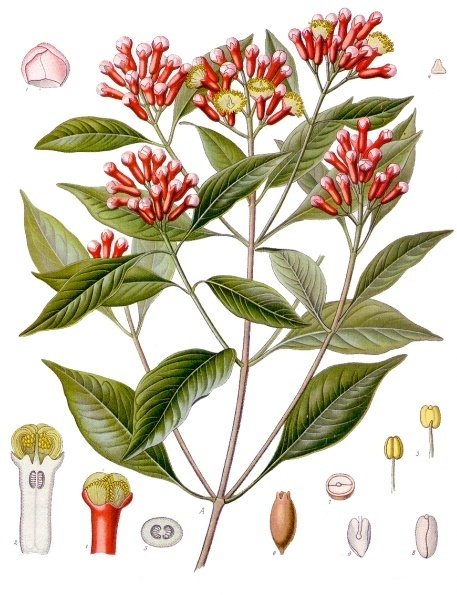Clove Bud Essential Oil
Clove Bud
Syzygium aromaticum/Eugenia caryophyllata
Latin Name: Syzygium aromaticum (formerly known as Eugenia caryophyllata)
Chemistry: Eugenol, B-Caryophyllene, Eugenyl Acetate
Aroma: Spicy, Warm, Woody
Good for: Pain relief, Digestive issues, Emotional support, Immune support
Energetics: Warming and comforting, giving a sense of energetic confidence.
Traditional use: Native to Indonesia, its flavour and aroma are ever present in dishes of the area but go as far afield as Mexico and Peru. It has a warm and comforting smell often associated with festive holidays like thanksgiving and Christmas. A pleasantly strong-smelling essential oil with its prominent Eugenol chemical component.
Clove bud vs Clove leaf
Knowing the source of the essential oil is important as clove bud and leaf oils have different chemical components with different therapeutic and safety concerns.
Clove bud essential oil has a stronger aroma and is commonly used for its medicinal properties, while clove leaf essential oil has a milder aroma and is often used in perfumes and fragrances. Both types of essential oils can be used for aromatherapy but for different purposes and can have different effects on the body.
Clove bud essential oil's chemical components have an anti-bacterial, anti-fungal, and microbial effect, making it an excellent oil for diffusing to clear the air and help with congestion and respiratory conditions (3).
The scent of Clove is very distinct and can pair well with oils that have a floral or citrus aroma, as it brings out different notes to each and has a beautiful versatility. It’s energising but also comforting, so it is excellent for staying calm but productive at the same time
Clove trees are known to be long-lived, with some individuals living for over 100 years. The oldest is believed to be on the Ternate island of Indonesia and is between 350 and 400 years old. Its name is Afo, and it has a fascinating history and role in how we use and plant cloves to this day(1). The clove tree is native to the Maluku Islands in Indonesia and has been cultivated in the region for thousands of years. The use of clove as a spice and medicinal plant dates back to at least the Han dynasty in China (202 BC – 220 AD). Cloves were also highly valued in ancient Rome and were used as a breath freshener and a digestive aid. In the Middle Ages, cloves were highly prized for their medicinal properties and were used to treat various ailments, including toothaches and infections. At one point, clove was traded as an expensive commodity like oil, and the Dutch East India Company tried to control its production of it, going as far as imposing the death penalty for anyone caught growing it on their own.
It is important to use these oils with caution and dilute them properly before use, as they can irritate the skin and mucous membranes.
Clove Co2 Extract
CO2 extraction is a method of extracting essential oils from plants using carbon dioxide as the solvent. It is a relatively new method that has gained popularity in recent years due to its ability to extract a broader range of plant compounds and its ability to produce a higher quality, more pure essential oil.
One of the main advantages of CO2 extraction is that it allows for the extraction of a wider range of plant compounds, including terpenes and flavonoids, which are not typically extracted using other methods. This results in a more complex and nuanced essential oil that better represents the natural aroma and properties of the plant.
Some potential benefits of clove bud essential oil include:
Antimicrobial properties: Clove bud essential oil has been found to have antimicrobial properties, which may make it effective at killing bacteria, fungi, and viruses.
Pain relief: Clove bud essential oil has been a natural pain reliever for centuries. It is believed to have anti-inflammatory and analgesic properties that may help to reduce pain and swelling
Antioxidant properties: Clove bud essential oil is high in antioxidants, which can help to protect the body from oxidative stress and the damaging effects of free radicals.
Mood and stress support: Some people use clove bud essential oil to help reduce feelings of stress and anxiety and to improve mood.
REFERENCE
1- The world's oldest clove tree
2- Reiter, M. and Brandt, W. Relaxant effects on tracheal and ileal smooth muscles of the guinea pig. Arzneimittelforschung. 1985;35(1A):408-414.
3- Harris, R. (2007) Aromatic approaches to adult rhino-sinusitis. International Journal of Clinical Aromatherapy, Volume 4 issue 2, 35-43.




